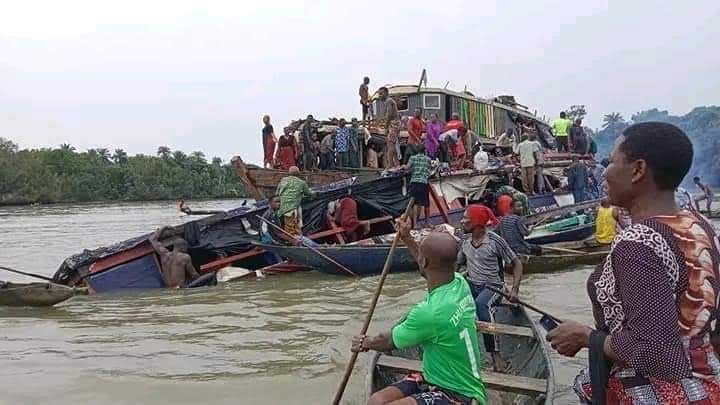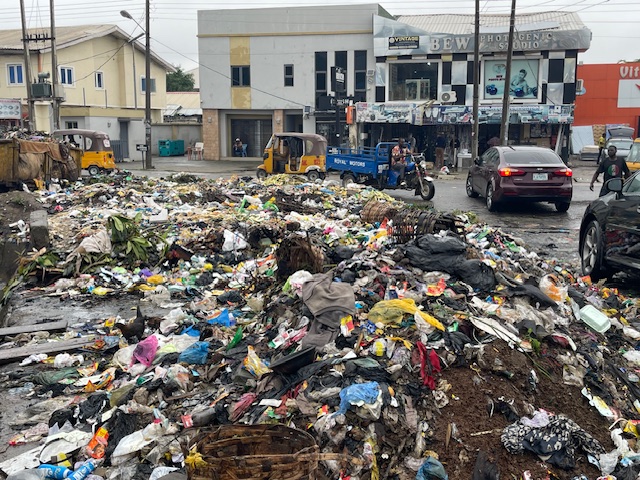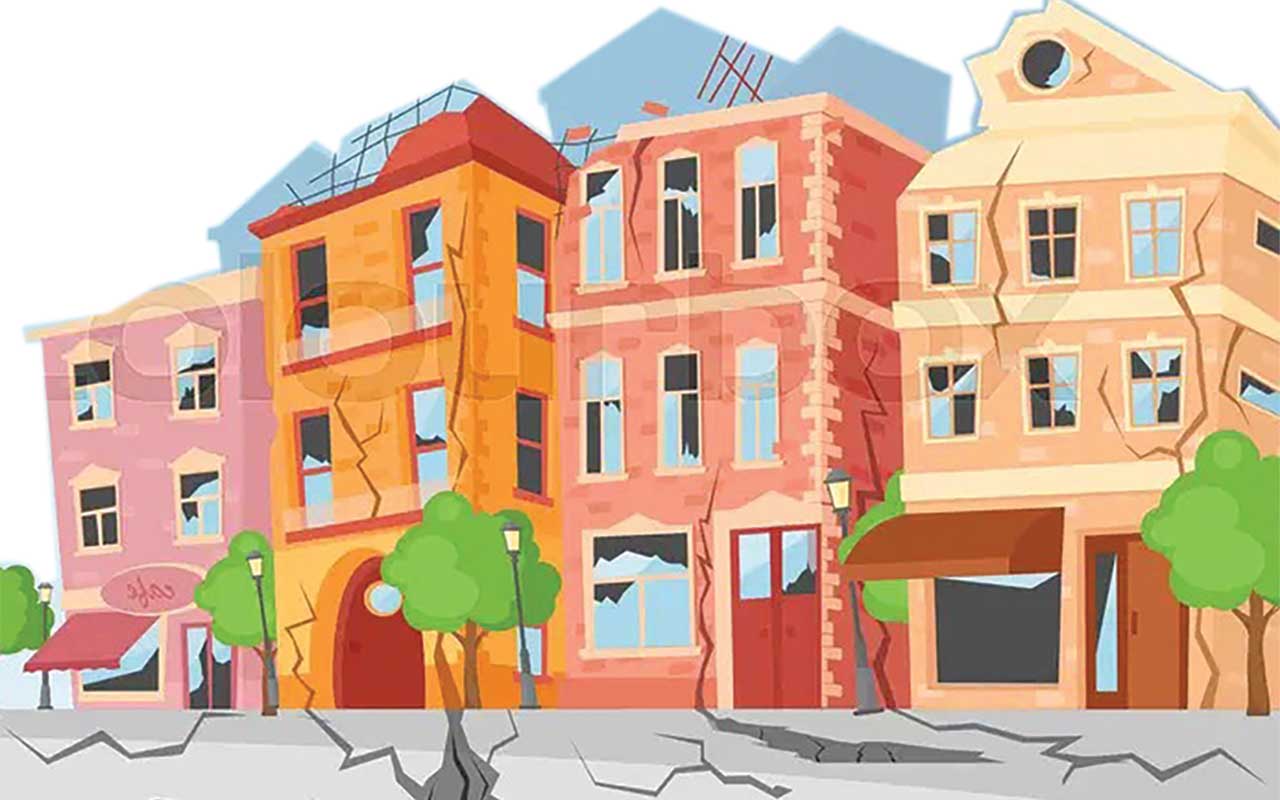
Recurring deaths in water bodies nationwide have become a source of worry to many. The latest of such tragedy is the death/disappearance of more than 100 in Niger State penultimate Thursday, with possible causes ranging from turbulence to the age of the vessel. BERTRAM NWANNEKANMA, ENIOLA DANIEL, and BANKOLE ORIMISAN report that closing regulatory and operational gaps, monitoring, and enforcement of laws will stem the deadly tide.
In April this year, the languorous town of Umuahia, the Abia State capital was stirred up by a protest following the drowning of a cadet officer of the Nigeria Defence Academy (NDA), Emmanuel Onyemereche, in a hotel.
The naval cadet allegedly drowned in a swimming pool inside Damgrete Hotel, prompting a protest by his Okwuta Ibeku kinsmen, who did not believe that the deceased with his training as an upcoming naval officer could have drowned in an ordinary swimming pool.
The same month, seven persons reportedly drowned at different swimming pools and beaches in Lagos State within six days.
While two drowned in a hotel in the Mushin area of the state; one in a hotel on Lagos Island, another in a hotel located at Ibeshe Island, and yet another one in a hotel in the Shasha area of the state, two fell into Third Mainland Bridge in an accident.
The victims included a 34-year-old activist, Fawaz Alabi, who drowned at the Ibeshe Beach.
Before then, there had been disturbing incidents of children drowning in private swimming pools.
For instance, in May 2022, Chidera Eze, a five-year-old pupil of Redeemers Nursery and Primary School, Ogba, Lagos State, drowned during a swimming lesson organised by the school.
In June same year, three siblings reportedly drowned in a swimming pool within their estate in the Ajah area of the state.
Still in 2022, a couple of other incidents were recorded, including the drowning of the three-year-old Ifeanyi Adeleke, the son of Afrobeat star, David Adedeji Adeleke, known professionally as Davido, in a swimming pool at his home, in Lagos.
Earlier in 2008, another music star, Dapo Oyebanjo (D’Banj), also lost his child via drowning, which has called to question, the safety of swimmers in Nigeria.
While the circumstances that led to the deaths of these children in the pools remain unclear in most cases, it was observed that many swimming pools in the country do not put enough safety measures in place to prevent drowning.
Child safety advocate and founder of Lagos-based Strap and Safe Child Foundation, Bolanle Edwards, described the death as “one too many.” She reiterated the need for increased pool safety for children across the country.
Apart from deaths in swimming pools, the nation’s waterways also churned out frightening figures of those who drowned over time.
Indeed, in 2023 alone, over 300 lives were lost to boat accidents across the country with Kwara and Anambra states recording the most deaths.
Also, states like Lagos, Kebbi, Taraba, Kano, and Niger witnessed recurrent cases of boat mishaps.
These mishaps were blamed on factors, including overloading, faulty engines, lack of enforcement of safety measures, and the use of life jackets.
The latest tragedy occurred on Thursday, November 28, 2024, in Niger State, and it left more than 100 missing, with possible causes ranging from turbulence to the age of the vessel.
At least 27 people died in an accident when a boat carrying about 200 passengers, from Kogi State to a food market in the neighbouring Niger State, capsized late on Thursday, according to Ibrahim Audu, a spokesperson for the Niger State Emergency Management Agency (NSEMA).
While it is difficult to get the accurate number of deaths arising from drowning, child safety advocate, Mrs Edwards maintains that at least 18 cases of drowning in swimming pools have been reported over the last four years, with eight of them happening in 2022 alone.
As expected, the majority of drowning incidents in Nigeria are recorded in water transportation.
For instance, early in January 2024, 100 people were reported missing following a boat mishap in Borgu Local Council of Niger State.

The Director-General of Niger State Emergency Management Agency (NSEMA), Abdullahi Baba-Arah, said that the boat took off from Dugga Mashaya, in Dugga Ward, and was heading towards Wara Market, in Kebbi State.
On January 8, 2024, about eight persons died in a boat accident that occurred in Anambra State.
Less than 48 hours later, 20 more people were killed in another boat mishap in Rivers State.
However, the avoidable death of Nigerian actor, John Odonwodo, popularly known as Junior Pope, alongside four others, on April 10, when their boat capsized in Asaba, Delta State, on their way back from a movie shoot was a very pathetic incident.
Besides claims that the use of life jackets was discountenanced by the deceased travelers, it was reported that there were no rescue personnel from the Delta State Ministry of Water Resources Development to join the rescue efforts.
Deplorable state of jetties
APART from a few Nigerian jetties that are properly fitted, and resourced for the trade, most of them do not enforce safety measures, especially the use of life jackets, while rickety boats still operate under their watch.
A good number of waterways are also infested with Pontederia crassipes, commonly known as water hyacinth, with boat operators struggling to clear their paths.
Also, rickety vessels powered by small engines carrying passengers beyond their capacities still dot the jetties, many with additional cargoes such as motorcycles. Night travels have continued too without authorities monitoring and enforcing laid down rules and regulations.
On many occasions, passengers who are even given life jackets are not sensitised on safety tips by the pilot in cases of emergency.
The Guardian’s visit to Ebute Ero Ferry Terminal, in Ikorodu, recently revealed the pathetic state of Nigeria’s jetties.
Even though the Ebute Ero terminal located in Ikorodu, and owned by the Lagos State government, has a semblance of what a modern jetty should be, where a strict no-life-jacket-no-entry is observed, it is still plagued by substandard boats plying the waterway. The absence of a patrol team to monitor the waterway constitutes a disincentive.
Need for improved waterway security, adherence to safety standards mounts
SAFETY expert and Managing Director, of Beacon Security and Intelligence Limited, Dr Kabir Adamu, said that regulatory agencies must strive to improve safety on waterways, by looking at issues, including the condition of the boats plying the waterways, and safety protocols.
According to him, there is a need to seriously scrutinize boats riders to see if they duly understand safety rules and the extent to which they put the same into practice.
On the state of jetties in Nigeria, Adamu said: “I am not proud of the state of our jetties; when I talk about safety, it’s part of what the regulatory agencies should look at. Part of what should also be looked at includes, weeds and trees that grow on the waterways that are left uncleared because they constitute safety challenges. The condition of the jetties needs to be improved.”
Importance of compulsory swimming, survival skills training
MOST Nigerians do not have access to private swimming pools, and usage of the ones in hotels comes at a premium. But with increasing deaths on the country’s waterways, many are of the view that basic safety skills, including swimming, could be vital to saving lives.
This was the view of the Transition Implementation Committee (TIC) Chairman of Patigi Local Council of Kwara State, Ibrahim Liman.
Reacting to the death of 100 people after the boat carrying them capsized in Egbu Village, in the Patigi Local Council, Liman said that all the people who survived the accident knew how to swim.
Reaffirming the importance of swimming skills, a swimming instructor, Tough Atelemo, said that knowing how to swim is a vital survival skill that people should learn.
According to her, since swimming is a survival skill, parents need to consider it as important as other skills.
Atelemo, who has taught hundreds of young children (some as young as six months), over the last two decades, said: “When you are training a child, you have to train him on how to survive in case of emergency.”
She advocated including swimming in the early years school curriculum, which is also a recommendation of the World Health Organisation (WHO).
A parent, Femi Nedd, whose three children took swimming before they could even walk said: “Swimming is not a luxury; it’s a life skill because you might never know when you need it.”
On his part, Dr Adamu said revitalising volunteering organisations like Boys Scouts, Boys Brigade, Girls Guide, as well as Girls Brigade could be the game-changer.
According to him, these organisations offer valuable life-saving and survival skills from their camping and hiking activities, which in turn prepare one for any adventure on solid ground.
While lamenting the decline in such volunteering organisations, he called on the ministries of youths and Women Affairs to ensure their revival as it could provide a forum to raise rescuers in times of emergencies.
He said: “One of the drivers of insecurity in Nigeria is the collapse of our value system. People’s interest has shifted, and a lot of interest is now geared towards material things. So, I think the role of the Ministry of Youth Development, and Ministry of Women Affairs in highlighting the importance of these types of clubs will be important as we advance because they keep our youths engaged and make them patriotic members of society.”
Authorities step up intervention
DESPITE accidents that have led to several deaths in Lagos, the General Manager of Lagos State Waterways Authority (LASWA), Damilola Emmanuel, claims that “over 100 water guards are stationed at jetties and terminals to ensure continuous compliance with safety rules.”
He added: “Our control room monitors activities in real-time while floating clinics are available for emergencies. Additionally, our search and rescue team provides swift responses when needed. We prioritise educating waterways users on Cardiopulmonary Resuscitation (CPR) and the significance of life jackets.”
Also, the Lagos State Safety Commission (LSSC) boss, Lanre Mojola said that the government has stepped up an awareness campaign to ensure that all public facilities, including beaches and swimming pools, adhere to safety regulations.
Such facilities, she said, are expected to display clear safety rules and emergency procedures while providing appropriate safety equipment, including first aid kits at the barest minimum.
Also, the Chairman of the Board of Trustees of the Association of Tourist Boat Operators and Water Transporters (ATBOWATON), Frank Meke, regretted that some boat pilots cannot swim, nor do they know how to put on life jackets properly.
He noted that the National Inland Way Authority (NIWA), being the only agency of government mandated to regulate water transportation in Nigeria is doing its part.
He, therefore urged passengers to ensure that they put on their life jackets properly, and also ensure that those piloting them drive within the specified speed limit.






